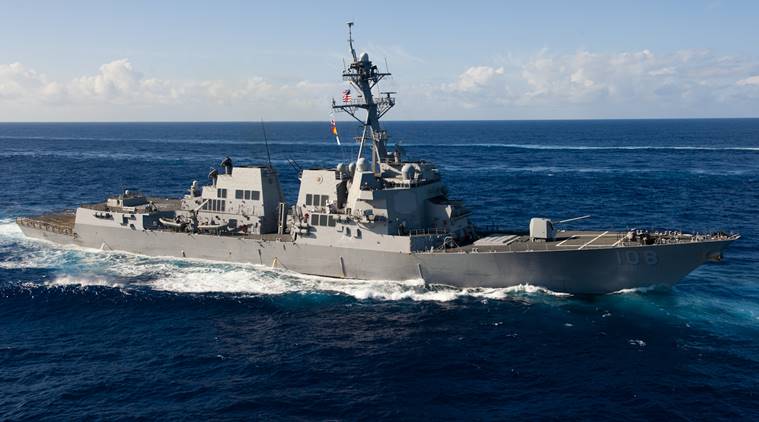The US military operation comes amid an increasingly bitter trade war between China and the United States that sharply escalated on Friday, with both sides levelling more tariffs on each other's exports.
A US Navy destroyer sailed near islands claimed by China in the South China Sea on Wednesday, the US military said, a move that Beijing condemned as an illegal attempt by Washington at “maritime hegemony”.
The busy waterway is one of a growing number of flashpoints in the US-Chinese relationship, which include an escalating trade war, American sanctions on China’s military, and US relations with Taiwan. Reuters reported on Tuesday that China had denied a request for a US Navy warship to visit the Chinese port city of Qingdao.
The US Navy vessel Wayne E Meyer, an Arleigh Burke-class guided-missile destroyer, carried out the operation, travelling within 12 nautical miles (14 miles/22 km) of Fiery Cross and Mischief Reefs, Commander Reann Mommsen, a spokeswoman for the Japan-based US Navy’s Seventh Fleet, said.
The operation was conducted “to challenge excessive maritime claims and preserve access to the waterways as governed by international law,” Mommsen said.
The US military operation comes amid an increasingly bitter trade war between China and the United States that sharply escalated on Friday, with both sides levelling more tariffs on each other’s exports.
The US military has a long-standing position that its operations are carried out worldwide, including in areas claimed by allies, and are separate from political considerations.
Chinese military spokesman Li Huamin said in a statement early on Thursday that the US vessel had encroached upon Chinese territorial waters near the Spratly Islands without the government’s permission and had been warned to leave.
“The facts prove that the United States’ so-called ‘freedom of navigation’ is actually an assertion of maritime hegemony that ignores international law, seriously harms China’s sovereignty and security interests, and seriously harms peace and stability in the South China Sea region,” Li said.
Source: Read Full Article


